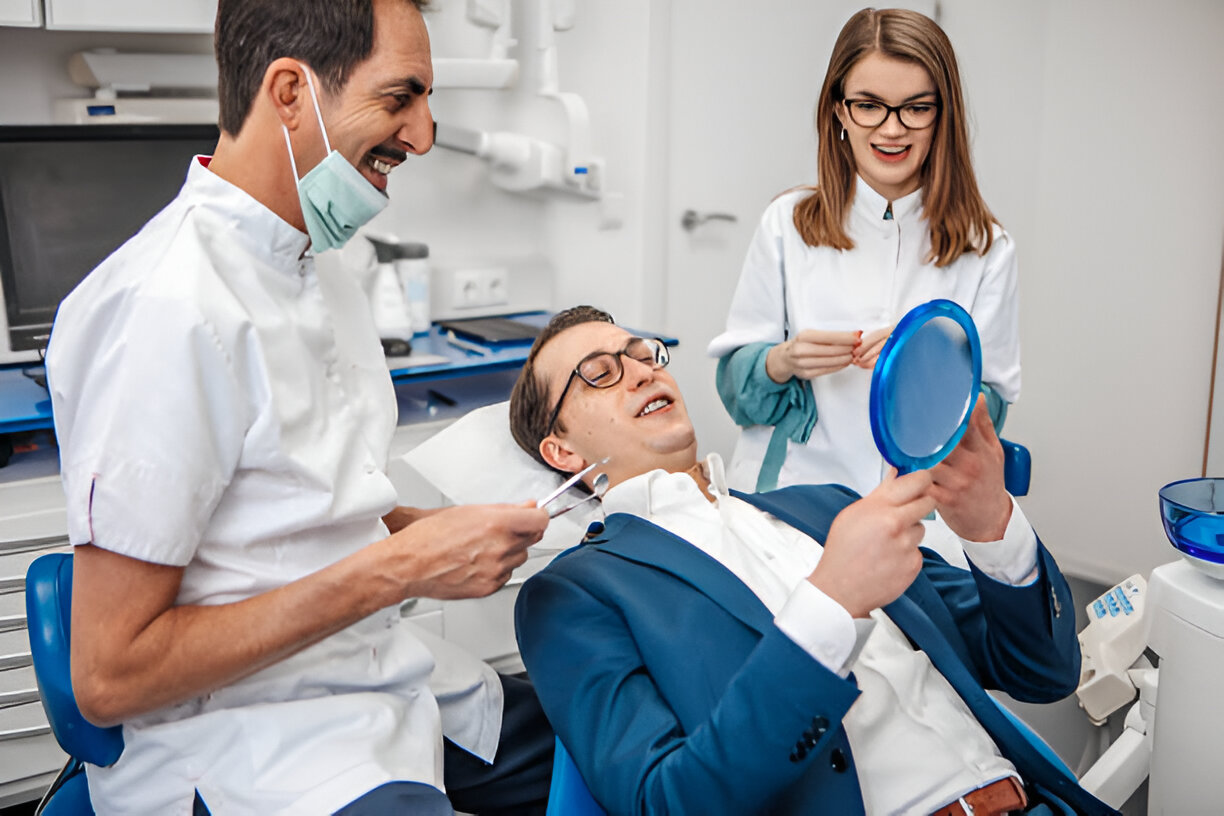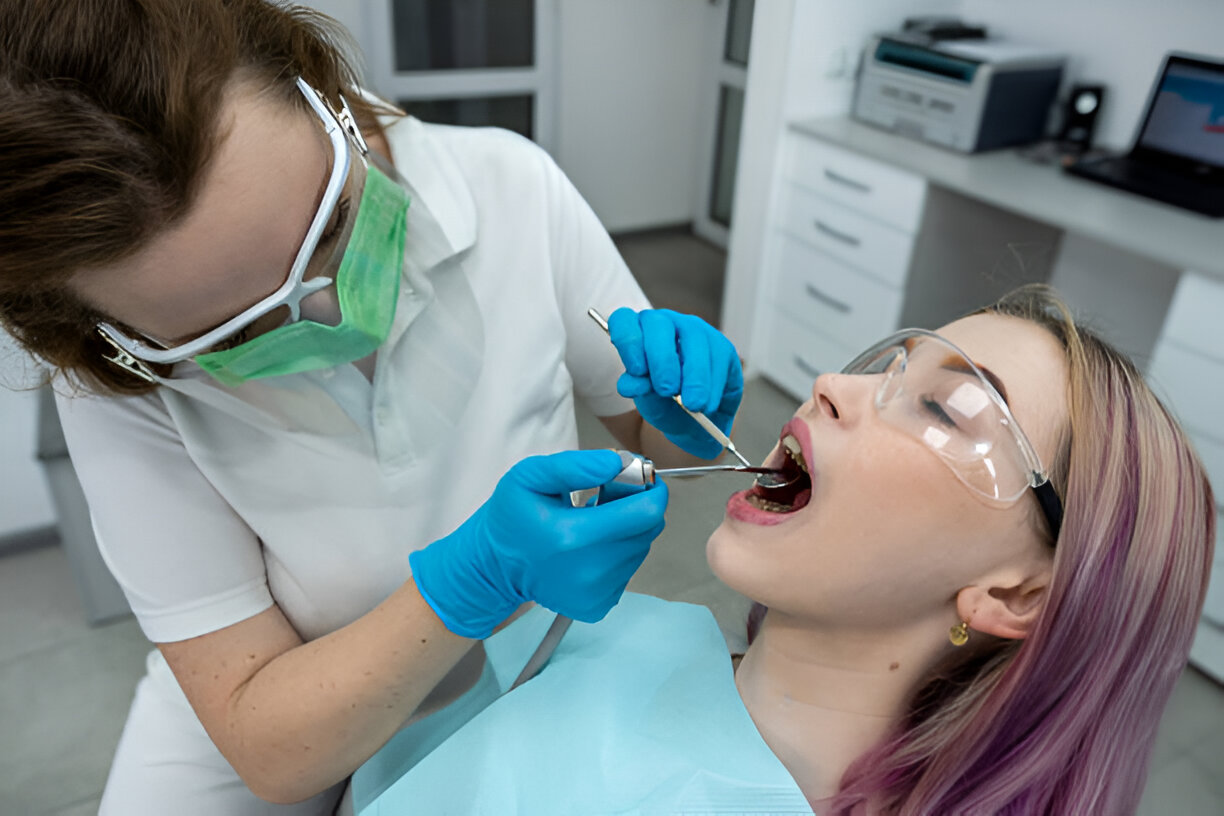
Summary:
Dental emergencies can strike at the most inconvenient times, causing immense pain and anxiety. This comprehensive guide will explain the different types of emergency dental treatments and how a Kansas City, Missouri, dentist can help you navigate these stressful situations. From tooth extractions to root canal therapy and handling dental trauma, emergency dental care is critical to ensuring your oral health remains intact. Understanding these treatments and when to seek immediate attention can save your teeth and prevent long-term damage.
Emergency Dental Treatments: What You Need to Know
Dental Emergencies don’t come with prior warnings. More often than not, they are sudden and unpredictable, leaving you in not only unbearable pain but also puzzled about what you should be doing next. Therefore, swift and professional dental care is crucial when emergencies arise, whether it’s a toothache, a knocked-out tooth, or a broken dental restoration. Accessing emergency dental care is relatively easy for you if you are in Kansas City. However, to act swiftly and confidently, one must understand the different types of dental treatments available to equip you better to handle such situations.
What Defines a Dental Emergency?
A dental emergency is any condition that causes severe pain, threatens the health of a tooth, or involves bleeding and infection that cannot wait for regular dental office hours. Common causes include accidents, trauma to the mouth, untreated infections, or lost dental restorations. Here’s a breakdown of the most common emergency dental procedures:
-
Tooth Extractions: When Is It Necessary?
Tooth extraction is the last resort for severely damaged or infected teeth that other means cannot save. Whether due to extensive decay, infection, or trauma, extraction becomes necessary to prevent further complications.
Why Tooth Extraction Happens:
- Severe decay or infection that cannot be treated with fillings or a root canal
- Advanced gum disease that has loosened the tooth
- Impacted wisdom teeth, causing pain and swelling
While many may fear the discomfort of extraction, modern techniques ensure a relatively painless process. Dentists will guide you through the procedure and help you with aftercare options, such as implants or bridges, to restore functionality.
-
Root Canal Therapy: Preserving the Tooth
A root canal is a critical emergency for saving a severely infected tooth. This procedure removes the infected pulp within the tooth, disinfects the canals, and seals them off to prevent reinfection.
Signs You May Need a Root Canal:
- Persistent pain when chewing
- Sensitivity to hot or cold foods
- Swollen gums near the affected tooth
- Darkened tooth color, indicating decay
In Kansas City, Missouri, emergency dental care often involves quick, same-day appointments for root canal therapy, ensuring you avoid further damage or infection spread.
-
Dental Crowns: Fixing Cracks and Breaks
Dental crowns are versatile solutions that cover and protect a damaged tooth, restoring its function and appearance. They are often used for teeth that have been chipped, cracked, or severely worn down due to trauma.
Benefits of Dental Crowns:
- Protects the tooth from further damage
- Restores strength, enabling normal biting and chewing
- Improves the aesthetics of the tooth, blending in with natural teeth
Fun Fact: Dental crowns have been used for over 4,000 years, dating back to ancient civilizations like the Etruscans.
-
Handling Knocked-Out Teeth: Time Is Everything
One of the most urgent dental emergencies is a knocked-out tooth. The key to saving the tooth lies in how quickly you act. If you can get to an emergency dentist within an hour, the chances of successful reimplantation are high.
Steps to Take When a Tooth Is Knocked Out:
- Handle the tooth by the crown (top), avoiding the root
- Rinse it gently with water, but do not scrub
- Try to place the tooth back in its socket, if possible
- Keep it moist by placing it in milk or a saline solution
- Seek immediate emergency dental care in Kansas City
Statistically, teeth reimplanted within 30 minutes have a higher success rate of reintegration into the gumline, so quick action is essential!
-
Dental Bonding: A Simple Fix for Minor Damage
Dental bonding offers a quick, minimally invasive solution for minor chips and cracks. Using a tooth-colored composite resin, the dentist molds and hardens the material onto the affected tooth, restoring its structure and appearance.
Advantages of Dental Bonding:
- Completed in a single visit
- Affordable compared to crowns or veneers
- Preserves most of the natural tooth
- Addressing Dental Infections and Abscesses
An abscess is a pocket of pus that forms around the root of an infected tooth. This is painful and dangerous, as untreated infections can spread, causing more severe health complications.
Treatment Options:
- Antibiotics: Often prescribed to stop the infection from spreading.
- Root Canal Treatment: To remove the infection and save the tooth.
- Incision and Drainage: Sometimes, an abscess needs to be drained before additional treatment.
Remember, ignoring a dental abscess can lead to significant issues, including tooth loss or systemic infections.
Fun Facts About Emergency Dental Care
- The earliest recorded dental extractions date back to the 18th century, when tooth decay was treated with primitive tools, including pliers!
- Nearly 5 million teeth are knocked out yearly in the U.S. during sports activities, making mouthguards essential for athletes.
Statistics on Dental Emergencies
- According to the American Dental Association (ADA), dental emergencies account for 22% of all hospital emergency room visits for oral health issues.
- Approximately 70% of Americans will experience some form of dental emergency in their lifetime, highlighting the importance of having a reliable emergency dentist on call.
Key Takeaways
Here are some essential points to remember:
- Act quickly in any dental emergency, particularly with knocked-out teeth.
- Emergency dental care can prevent long-term complications, including tooth loss and infections.
- Regular checkups help avoid many emergencies by addressing issues early on.
- The Dental Care Center of South Kansas City offers prompt, professional care for all your dental emergencies.
Are you facing a dental emergency? Contact the Dental Care Center of South Kansas City for same-day appointments and fast relief from pain. Our team is ready to provide compassionate, expert care, whether you have an ache, broken tooth, or dental infection. Call us today!



